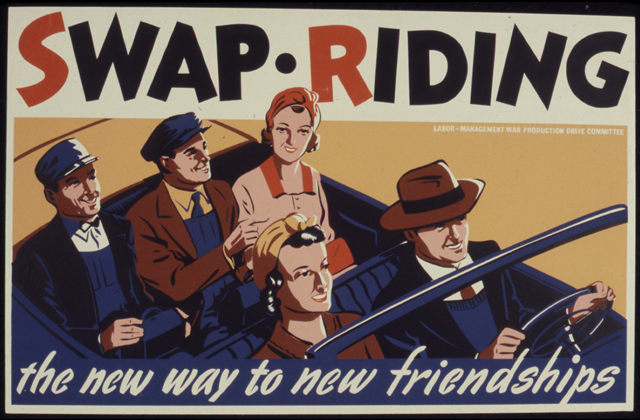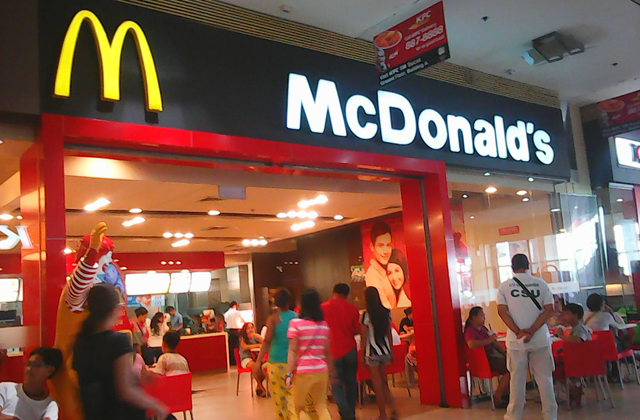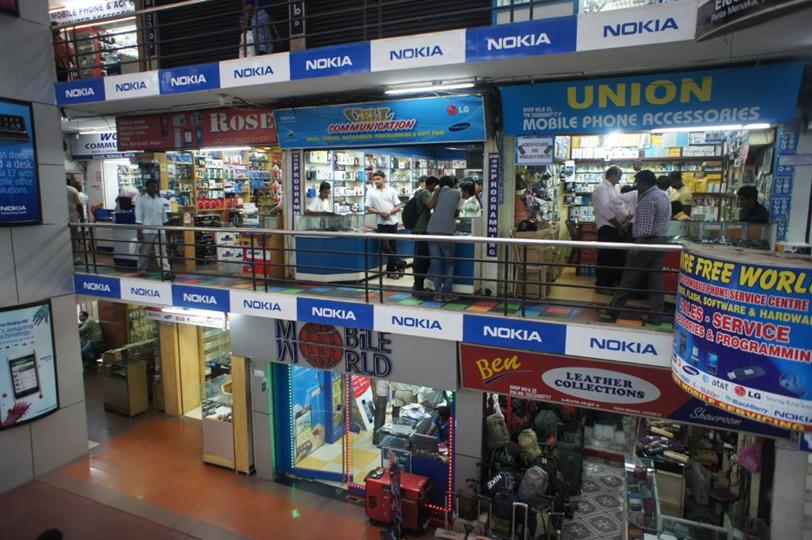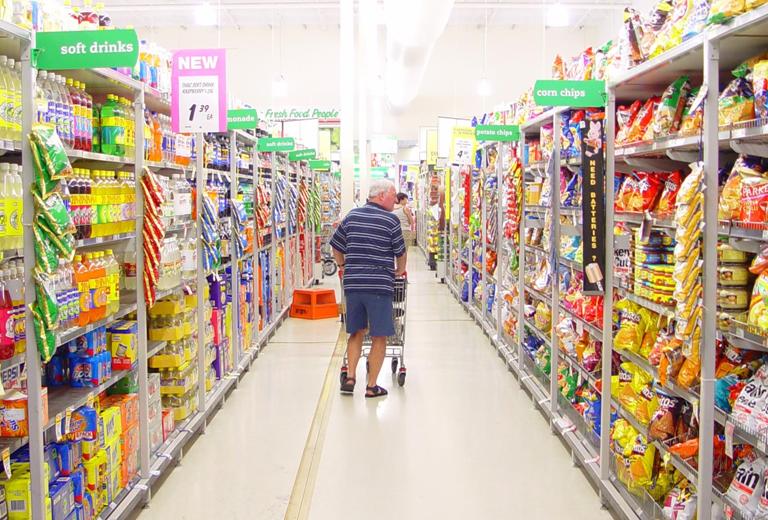Bubble Wrap without its pop may be a bit like soda pop without the fizz, sure it’s more compact, but where’s the fun? Bubble wrap and that oh-so-satisfying popping of its bubbles may be set to become a thing of the past. Keep calm. Deep breaths. Inhale, and, exhale. Inhale, and, exhale. Bubble wrap as known in its traditional form with the individually sealed blisters or bubbles of air was invented in 1957, and since 1960 and has been sold under the name of Bubble Wrap by the company Sealed Air. Although not the only company to sell bubble wrap, and variants do exist, Sealed Air is changing things up with its new protective packaging and wrapping solution. The name of the new product, rather uninspiringly, is iBubble Wrap. (Surely by now the bubble in iNames would’ve burst, but predicting that may have to wait for the benefit of hindsight.) ...
Read More »Business
Uber to Charge GST in Australia
As of 1 August 2015, Uber drivers in Australia will need to be registered for, and start charging GST. The 10 percent Goods and Services Tax (GST) will apply for people paying for a ride using the ride-sharing service Uber. This is consistent with the Australian Government’s move to begin charging the GST on digital products (including those purchased internationally, even if costing under A$1,000). In many regards, this has the acknowledgement that the digital economy, alternatively referred to as the sharing economy, is here to stay. Despite concerns related to Uber, predominantly by those in the taxi industry, this move suggests legitimising the business of Uber from a governmental perspective. Naturally there’s money involved. With Uber drivers to start charging GST, this brings them in line with taxi drivers charging GST. Beyond paying tax in the obvious method via the GST, it also closes the various loopholes which had ...
Read More »Australia to Charge GST on Digital Products
Australia is now to implement its 10 percent GST on digital downloads for items purchased by Australians from international sellers. Dubbed the “Netflix Tax” it will apply to digital goods sold by those such as Amazon, Google, and Netflix. The now inclusive 10 percent Goods and Services Tax (GST) will be charged on all digital products and services bought online, including books, games, movies, and music. Treasurer Joe Hockey has stated that the current GST exemption for online purchases of items under A$1,000 will continue to apply for physical goods. (Note that the A$1,000 amount includes the full cost, including shipping to bring it to Australia.) In some ways, adding the GST to digital goods Australians purchase will bring things in line with the business and tax practices already faced by Australian businesses and those doing business in Australia. Which could be regarded as a levelling of the playing field. For example, ...
Read More »McDonald’s Reboots Hamburglar Mascot to Purloin the Sirloin and Save Company
McDonald’s the once mighty, how it has fallen. For a long time McDonald’s was iconic, and while it still enjoys brand recognition, with the Golden Arches becoming more recognised than the cross of Christianity, its relevance is again being questioned. With this, so too are revenue and profits falling. Whereas profits vary from quarter to quarter, within a business, especially a giant corporation such as McDonald’s, revenue tends to be more stable. However, revenue itself fell near 7 percent to US$6.57 billion in the December 2014 quarter. Granted it is still profitable, but consider that’s a difference of near US$415 million less revenue for the quarter. It faced a challenging 2014, including food safety scandals and supplier issues in Asia, closures of restaurants in Russia and Ukraine, and declining sales in its US heartland attributed largely to increased competition. When it comes to the McDonald’s of today, people are increasingly ...
Read More »Splitting the Bill on the Sharing Economy
A Table for Many A recent report by Australia’s A Current Affair claimed that some so-called restaurants operating within the Menulog website, were providing takeaway meals which were not produced by restaurants under restaurant conditions. Rather, they were produced in homes, by unregistered and unlicensed businesses. Furthermore, where produced by restaurants, some were listing themselves as being multiple different restaurants. Before examining this more, Menulog is part of the newer range of websites and apps seeking to connect the consumer digitally to the restaurants. A change of offering convenience and potential home deliveries of takeaway meals over the more traditional location-bound restaurant experience. Effectively creating a digital marketplace and promotional space for restaurants, restaurateurs, and potential customers. Concerns raised with the A Current Affair report seem more sensational than substantial. Since when did a home-cooked meal necessarily become a bad thing? Furthermore, consider that few if any of the various meals and products ...
Read More »Will Consumers Pay More for Ethical Products?
The notion of ethical treatment for workers, and for farm animals, is an admirable one. Yet to many, it often seems but a lofty idea, rather removed from their direct experience. Most only see the final product. The mobile phone. The item of clothing. The prepared cut of meat. For most, that’s all they want to see and think about. Along with an often desired cheap price. Some moves have been made to change this. To increase awareness. Examples include the Rainforest Alliance Certified products such as coffee; and farms that have introduced the sale of produce such as free range chickens and eggs. Apple was heavily criticised in 2012 over the working conditions in its Chinese factories; some claim these are still sweatshops. The company recently issued an unrelated apology signed by Apple’s CEO Tim Cook over its repair policies for Chinese consumers. Again bringing the issue to the fore, was the recent collapse and fire of the factory building near Dhaka, in Bangladesh. Reported ...
Read More »Blind to a Bargain or Real Pricing?
“Psst… Want to buy this? It’s worth $500, but you can have it right now for only $49…” There’s something appealing in the idea of getting a bargain. Somehow, paying less for something than it is supposedly worth. The rather dubious, yet familiar, statement at the start of this article need not just be confined to back alley deals and crowded markets though. It’s something that most, if not almost all, mobile phone companies do. The question is then, why are we so blind to this? From the standpoint of the mobile service provider, the strategy is at least twofold. One, it appeals to consumers’ innate sense of getting a bargain. Two, if the consumer goes over the cap amount, then the company can charge the inflated rate for usage. Yet as a customer, is it really worth all the weighing up and judging what is and isn’t included in a cap when it ...
Read More »Customer Loyalty – A two-way street?
Customer or consumer, loyalty can be a tenuous thing. There is little doubt that a business selling something, be it a good or a service, is attempting to profit in some way from the transaction. A customer may buy on the grounds that the perceived value they will receive is worth at least the money that they’ll part with. In saying this, once a customer is generally familiar (and not dissatisfied) with something, they will tend to use it again. There is a general inertia, or “stickiness” as some describe it, in customer behaviour and preferences. This is not entirely irrational. There is a search cost, time and money spent, in finding something new. People generally also prefer to avoid uncertainty. So sticking with what you know, is often the easiest approach. Therein brand loyalty tends to arise. Yet in saying this, it’s curious (said perhaps euphemistically), the ways in which businesses often exploit ...
Read More » uthinki Considered Opinion?
uthinki Considered Opinion?







